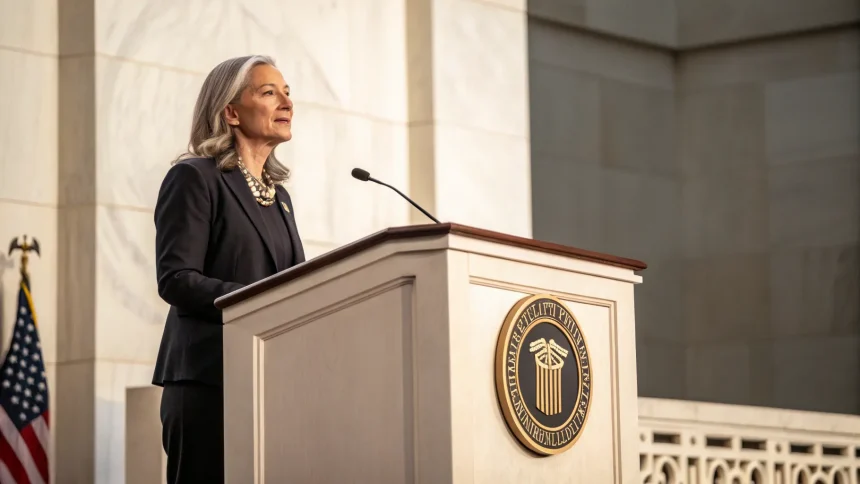Federal Reserve Governor Michelle Bowman emphasized the critical importance of maintaining the central bank’s independence in monetary policy decisions during a CNBC interview. Her comments came as she prepared to host a conference on bank regulation at the Federal Reserve.
“It’s very important … that we maintain our independence with respect to monetary policy,” Bowman stated firmly in the interview.
Bowman’s remarks arrive at a time of increased political pressure on the Federal Reserve. President Donald Trump, who initially appointed Bowman to the Fed Board of Governors during his first term, has recently intensified his criticism of the central bank and its leadership.
Political Pressure on Monetary Policy
The timing of Bowman’s statement is particularly notable as it follows escalating criticism from Trump directed at Federal Reserve Chair Jerome Powell. The President has expressed frustration with Powell and the Fed for not lowering interest rates in line with his preferences.
This tension highlights the ongoing challenge central banks face in maintaining their autonomy from political influence. Independent monetary policy is widely considered essential for economic stability and preventing short-term political interests from interfering with long-term economic health.
“It’s very important … that we maintain our independence with respect to monetary policy.”
Bowman’s Role at the Federal Reserve
Bowman’s position carries significant weight in these discussions. Originally appointed by Trump during his first presidential term, she was recently elevated to become the top banking regulator at the central bank. This promotion gives her substantial influence over banking policy and regulation.
As the host of a day-long conference on bank regulation, Bowman’s defense of Fed independence signals her commitment to traditional central banking principles even as political pressures mount.
The Importance of Central Bank Independence
Central bank independence has been a cornerstone of modern monetary policy for decades. Independent central banks can make decisions based on economic data and long-term stability rather than political cycles or pressure.
Economic research consistently shows that countries with independent central banks typically experience:
- Lower inflation rates
- More stable economic growth
- Greater resilience during economic crises
- Higher public confidence in monetary policy
Bowman’s defense of this principle comes at a crucial moment when the relationship between the Federal Reserve and the executive branch faces increasing strain.
The Federal Reserve’s decisions on interest rates affect everything from mortgage rates to business loans, making them a frequent target for political commentary. However, most economists agree that political interference in these decisions typically leads to worse economic outcomes over time.
As the Federal Reserve navigates these challenges, Bowman’s clear stance on independence reinforces the institution’s commitment to making monetary policy decisions based on economic data rather than political considerations.







